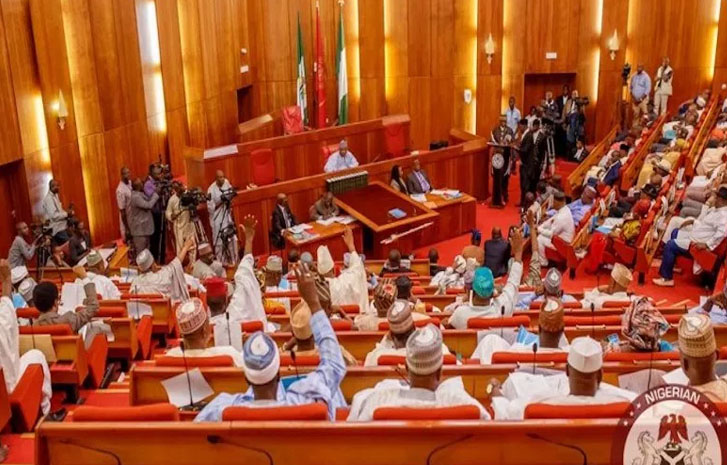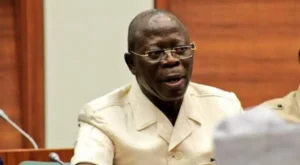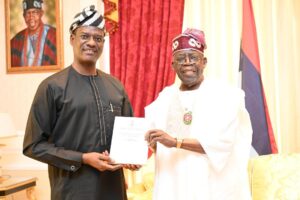On Thursday, the Nigerian Senate approved President Bola Tinubu’s highly debated Tax Reform Bills for a second reading. The four bills, which aim to overhaul Nigeria’s tax administration system, are at the heart of a major legislative push that could transform how taxes are collected and managed across the country. While these reforms have been praised for their potential to improve efficiency, they also face criticism, particularly regarding constitutional concerns and the process through which they are being passed.
The proposed Tax Reform Bills include several critical changes to Nigeria’s tax system. These are the core elements:
The first bill proposes the creation of the Joint Revenue Board, Tax Appeal Tribunal, and the Tax Ombudsman. These bodies are designed to harmonize and coordinate revenue collection and resolve disputes that arise in the administration of taxes. This measure aims to reduce conflicts and improve the efficiency of revenue management at the federal, state, and local levels.
The second bill seeks to repeal the current Federal Inland Revenue Service (FIRS) Act of 2007 and establish the Nigeria Revenue Service (NRS). The NRS would be tasked with overseeing the entire revenue collection process at the federal level, including the assessment, collection, and management of federal revenue. This proposed change could streamline Nigeria’s tax system and bring more uniformity to the country’s revenue collection process.
Another bill focuses on creating a unified system for the assessment, collection, and accountability of taxes across federal, state, and local governments. This bill would outline the powers and responsibilities of tax authorities, ensuring clear roles and reducing inefficiencies in revenue collection across different levels of government.
The final bill proposes to repeal certain outdated taxation laws and consolidate Nigeria’s legal framework into a Nigeria Tax Act. This would cover all aspects of taxation, including income tax, transactions, and financial instruments. The new law would provide a clearer and more modern approach to taxation in Nigeria, reducing ambiguities and legal conflicts.
The sponsor of the bills, Senate Majority Leader Bamidele Opeyemi, has strongly supported the reforms, arguing that they will bring about a positive shift in Nigeria’s tax administration. According to Opeyemi, the proposed laws will improve the country’s tax system, making it more efficient, transparent, and fair for Nigerians. He believes the changes will ultimately benefit citizens by creating a more robust tax system that ensures greater accountability and effective governance.
Despite the support, the bills have sparked significant debate, with some senators expressing concerns about their impact and constitutionality. Senator Ali Ndume raised pointed objections during the Senate discussion, emphasizing that the proposed reforms may contradict certain provisions of Nigeria’s 1999 Constitution. Ndume argued that before moving forward with these bills, the Constitution should be amended to reflect the goals of the tax reforms. He also expressed concerns over the lack of consensus from key stakeholders, including the Nigerian Governors’ Forum and the National Executive Council. Furthermore, traditional rulers and other community leaders have voiced opposition to the bills, arguing that they may not be in the best interest of all Nigerians.
While Ndume acknowledged that some aspects of the reforms were positive and could benefit the country’s tax administration, he stressed the importance of following due process. He called for a more transparent and consultative approach, in line with parliamentary rules and constitutional provisions, to ensure that the reforms are legally sound and widely supported.
Despite these objections, Senate President Godswill Akpabio allowed the bills to proceed for a second reading after hearing from both supporters and critics. Senators Seriake Dickson and Mohammed Ali Monguno voiced their strong support for the bills, arguing that the reforms are necessary to modernize Nigeria’s tax system and promote greater economic growth.
After weighing the arguments, the Senate passed the bills for a second reading by a voice vote, meaning the majority of lawmakers voted in favor of the proposed changes. The bills will now move to the committee stage, where they will undergo further scrutiny, potential amendments, and further debate before being returned to the Senate for a final vote.
The passage of the bills for a second reading marks a significant step in the reform process, but it is far from the end. If these reforms are to become law, they will need to pass through several more stages in the legislative process. The bills will be reviewed by Senate committees, and there may be additional debates and amendments before they are passed into law.
The Nigerian public, as well as stakeholders from various sectors, will be watching closely as these reforms continue to develop. While the proposed changes to Nigeria’s tax system could bring significant improvements, ensuring that they are constitutional and widely accepted will be key to their success.
In the coming months, the debate over the Tax Reform Bills is likely to intensify, and Nigerians will continue to weigh the benefits and potential challenges posed by this ambitious legislative effort.







